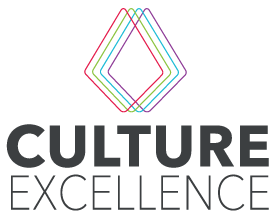Our Story
We are not new to culture assessment, and indeed our journey started more than two decades ago. What makes our work unique is the combination of deep academic credentials, real world business experience, and IT geekery. Read on to learn more.
The Start
The journey of Culture Excellence started back in the 1990s. Conducting psychological research in industry, Dr Joanne began to gather insights into factors that affected the likelihood of people doing the right thing when it came to safety and quality. In the years that followed, this research led to multiple assignments with the UK government, the achievement of a PhD, international conference presentations and commended academic publications.
After taking up a university teaching role, Dr Joanne developed and taught post-graduate modules on International Business, Organisational Culture, Research Methods and HACCP (a risk management system for the food industry). Utilising theory from a wider range of disciplines, and with international researchers replicating her work overseas, she extended her research work further. Over the following years, this led to the creation of a unique, in-depth assessment of safety and quality culture within organisations, and a prototype of Culture Excellence.
The Model
Safety and quality culture is a complex topic, requiring in depth knowledge of psychological, managerial and technical elements. The task at hand was to create a model that was simple and structured without compromising academic rigour. To compliment Dr Joanne’s work, the team expanded to bring on board experience in international business and IT.
Together, they divided the concept of culture into four key categories - People, Process, Purpose and Proactivity, the 4 Ps - and the Culture Excellence model was born.
People relates to all levels of employees in a company, and whether they are empowered, rewarded, part of a team, trained and communicated with.
Process relates to the internal mechanisms of a company, including management control, the use of systems, co-ordination between departments and sites, consistency of standards and the suitability of the physical premises.
Purpose is all about the vision, strategy and values of the company, and how this translates into targets and measurements.
Proactivity is about whether the company knows where their risks are, stays aware of customers and suppliers, and whether they innovate, invest and continually learn and improve.
The Assessment
Once we know what culture consists of, how can we measure it? Well, this is tricky. Much of culture is invisible, some is hard to explain, not everyone in a company will have the exact same experience, and some people may not be comfortable to share their views. This is why our assessment was uniquely carefully designed and constructed to take all of these concerns into account and mitigate their impact. Even more importantly, we had over 20 years of exclusively owned and analysed research data to show exactly what actions, beliefs and experiences contribute to a company’s attainment of quality and safety success.
A few key features of the culture assessment tool are:
Complete anonymity
Is taken by a representative sample of employees from all hierarchical levels and sites
Has a carefully constructed range and balance of questions
Is designed from the psychological perspective of the ‘defended subject’ to elicit the greatest level of relevance and honesty
Is translated into more than 50 languages
Has specific questions based on business sector and employee level.
To read more about our assessment click here
The Impact
We have been incredibly happy to see the uptake of our culture assessment in companies around the world, from small start-ups to multi-national Fortune 500s. The assessment has now been taken in more than 85 countries across over 5000 sites and these numbers are growing all the time.
Our core mission is to raise awareness of the importance of culture in organisations, whether big or small, government or private, local or international. We fundamentally believe that culture isn’t a soft value to be placated when times are great, but a key component for any company that wishes to be successful.
We have been proud to see the continuous improvements that companies have made in response to our assessment, and the enthusiasm for all things culture that has resulted from the program. To see some of our clients experiences, click here.


